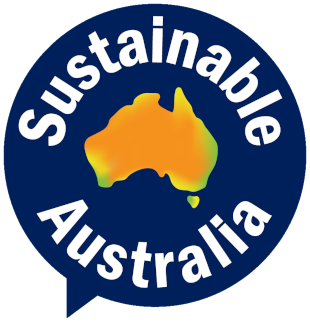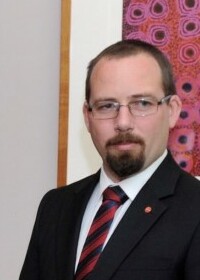The electoral system of Australia comprises the laws and processes used for the election of members of the Australian Parliament and is governed primarily by the Commonwealth Electoral Act 1918. The system presently has a number of distinctive features including compulsory enrolment; compulsory voting; majority-preferential instant-runoff voting in single-member seats to elect the lower house, the House of Representatives; and the use of the single transferable vote proportional representation system to elect the upper house, the Senate.

The Family First Party was a conservative political party in Australia which existed from 2002 to 2017. It was founded in South Australia where it enjoyed its greatest electoral support. Since the demise of the Australian Conservatives into which it merged, it has been refounded in that state as the Family First Party (2021), where it contested the state election in 2022, but failed to win a seat.

The Shooters, Fishers and Farmers Party (SFF) is a conservative Australian political party. It primarily advocates for increased funding and services for rural and regional Australia, protecting the right to farm, enhancing commercial and recreational fishing, tougher sentencing for illegal firearm trade and usage, and relaxing gun control for law abiding citizens.
A group voting ticket (GVT) is a shortcut for voters in a preferential voting system, where a voter can indicate support for a list of candidates instead of marking preferences for individual candidates. For multi-member electoral divisions with single transferable voting, a group or party registers a GVT before an election with the electoral commission. When a voter selects a group or party above the line on a ballot paper, their vote is distributed according to the registered GVT for that group.
Legalise Cannabis Australia, formerly the Help End Marijuana Prohibition (HEMP) Party, is a single-issue Australian political party. It has a number of policies that centre around the re-legalisation and regulation of cannabis for personal, medicinal and industrial uses in Australia.

The Libertarian Party, formerly known as the Liberal Democratic Party (LDP), is an Australian political party founded in Canberra in 2001. The party espouses smaller government and supports policies that are based on classical liberal, libertarian principles, such as lower taxes, opposing restrictions on civil liberties, decentralisation, uranium mining, and the relaxation of smoking laws.
Reason Australia, commonly referred to as the Reason Party or as simply Reason, was an Australian political party. Its leader, Fiona Patten, described the party as a "civil libertarian alternative". Patten was elected to the Victorian Legislative Council as at the 2018 state election in the Northern Metropolitan Region, after formerly being elected as a Sex Party member for the same seat in 2014. However, she lost re-election in 2022.
Peter James Breen is a former Australian politician. He was a solicitor before entering politics, achieving a Diploma of Law from Sydney University. He was originally a member of the Liberal Party, serving as President of the Campbelltown Young Liberals 1971–1972. From 1995 to 1998 he was Secretary of the Australian Bill of Rights Group, and in 1998 joined Reform the Legal System. In the 1999 New South Wales election he was elected to the Legislative Council.
Glenn William Druery is an Australian political strategist, electoral campaigner and ultra-distance cyclist. He has played a leading role in the electoral success of various micro and minor parties in Australia since the mid-1990s.

The 2013 Australian federal election to elect the members of the 44th Parliament of Australia took place on 7 September 2013. The centre-right Liberal/National Coalition opposition led by Opposition leader Tony Abbott of the Liberal Party of Australia and Coalition partner the National Party of Australia, led by Warren Truss, defeated the incumbent centre-left Labor Party government of Prime Minister Kevin Rudd in a landslide. It was also the third time in history that a party won 90 or more seats at an Australian election. Labor had been in government for six years since being elected in the 2007 election. This election marked the end of the Rudd-Gillard-Rudd Labor government and the start of the 9 year long Abbott-Turnbull-Morrison Liberal-National Coalition government. Abbott was sworn in by the Governor-General, Quentin Bryce, as Australia's new Prime Minister on 18 September 2013, along with the Abbott Ministry. The 44th Parliament of Australia opened on 12 November 2013, with the members of the House of Representatives and territory senators sworn in. The state senators were sworn in by the next Governor-General Peter Cosgrove on 7 July 2014, with their six-year terms commencing on 1 July.
The Advance Australia Party, formerly the Building Australia Party, was a minor political party in Australia, advocating the rights of the building industry. First registered in New South Wales, it achieved federal registration in June 2010, but was deregistered in May 2015. However, the party was still active for several years afterwards on a state level, sending out candidates for the New South Wales Hills Shire Council and Mayoral elections in 2017. The Advance Australia Party was deregistered on 13 August 2019.

The Sustainable Australia Party is an Australian political party that was formed in 2010.

The United Australia Party (UAP), formerly known as Clive Palmer's United Australia Party and the Palmer United Party (PUP), is an Australian political party formed by mining magnate Clive Palmer in April 2013. The party was deregistered by the Australian Electoral Commission in 2017, revived and re-registered in 2018, and voluntarily deregistered in 2022. The party fielded candidates in all 150 House of Representatives seats at the 2013 federal election. Palmer, the party's leader, was elected to the Division of Fairfax and it reached a peak of three senators following the rerun of the Western Australian senate election in 2014. When the party was revived under its original name in 2018, it was represented by ex-One Nation senator Brian Burston in the federal parliament.

Ricky Lee Muir is an Australian politician who served as a Senator for Victoria from 2014 to 2016.

The following tables show state-by-state results in the Australian Senate at the 2013 Australian federal election.
The Uniting Australia Party was a minor Australian political party that ran candidates in the 2013 federal election. During the campaign it attracted attention for thwarting Clive Palmer's attempts to name his party the "United Australia Party", since it had registered first and the names were too similar.
The Minor Party Alliance (MPA) is a collaborative undertaking of small Australian political parties, created by Glenn Druery's "Independent Liaison" business, which assists in organising preference meetings and negotiating preference flows between minor parties in Australia. The aim of the Alliance is the election of Alliance candidates to Australian upper houses based upon the accumulation of their primary votes and the registered "above-the-line" party preferences to reach an electoral quota. For the Australian Senate, the quota for a half-Senate election in each State is normally 14.3%. The MPA effectively aims to "game" the electoral system, an act it believes to be justified, based upon their perception that the Australian electoral system is unfair and heavily biased against minor parties.

The Health Australia Party (HAP) was a political party in Australia, founded in 2013 as the Natural Medicine Party. It adopted its current name in 2015.
The Australian Sex Party was an Australian political party founded in 2009 in response to concerns over the purported increasing influence of religion in Australian politics. The party was born out of an adult-industry lobby group, the Eros Association. Its leader, Fiona Patten, was formerly the association's CEO.

The Australian Federation Party (AFP), also known as AusFeds and formerly known as the Country Alliance and the Australian Country Party, is an Australian political party. Founded in 2004 by four rural Victorians, the party lodged its initial registration with the Victorian Electoral Commission on 15 August 2005.










